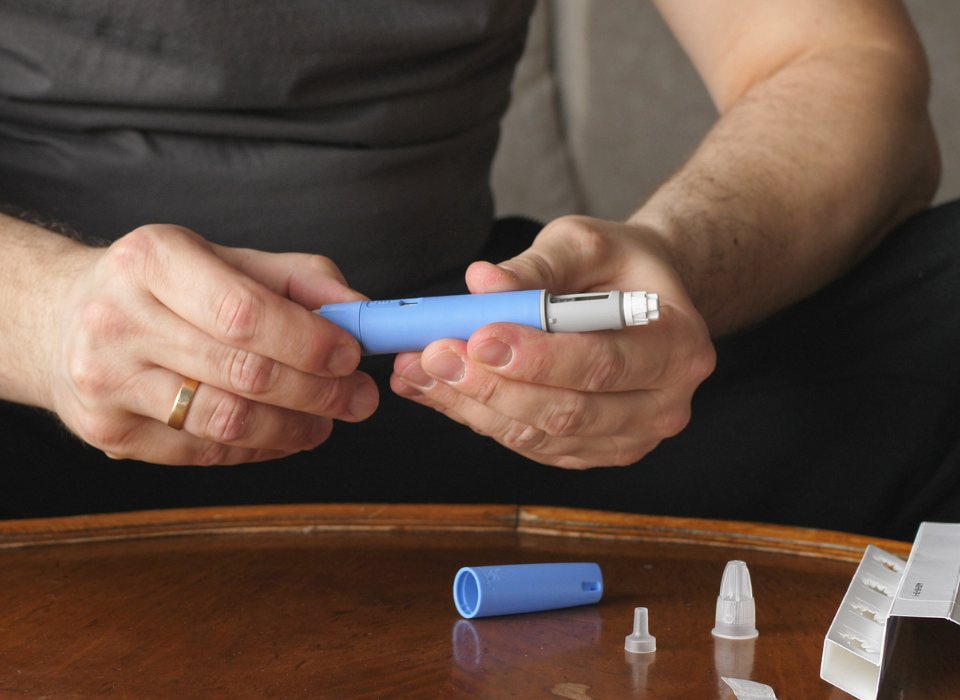
Navigating the Holidays with Binge Eating Disorder: Tips for Mindful Eating
November 25, 2024
10 Meaningful Holiday Gift Ideas for Loved Ones in Mental Health Recovery
December 3, 2024
The holiday season is a time for celebration, family gatherings, and abundant food. However, for individuals recovering from an eating disorder, this time of year can be particularly challenging. The combination of holiday stress, social pressures, and food-centered events can create an environment ripe for relapse. Understanding the typical eating disorder relapse triggers and developing strategies to overcome an eating disorder relapse during the holidays is essential for maintaining recovery and well-being.
Why Are the Holidays Challenging for Eating Disorder Recovery?
Holidays often involve large meals, family gatherings, and a focus on indulgence. For someone recovering from an eating disorder, these factors can cause significant distress. The heightened focus on food can lead to anxiety, feelings of loss of control, or an intense fear of overeating or restricting. Social interactions can also become overwhelming, especially if well-meaning friends or family members comment on appearance, weight, or food choices.
Common Eating Disorder Relapse Triggers During the Holidays
- Food-Centric Gatherings
Holiday parties and family dinners often revolve around food, which can be difficult for someone with a history of disordered eating. Being surrounded by food, especially in large quantities and many choices, may trigger anxiety, leading to restrictive behaviors or binge eating. - Pressure to Conform
Social and cultural pressures to eat certain foods or participate in traditions may make it difficult for individuals in recovery to honor their boundaries. Feeling the need to fit in with others or avoid drawing attention to their food choices can lead to relapse. - Emotional Stress
The holidays are a time when unresolved emotions and family dynamics can come to the surface. Tensions between family members, unresolved trauma, or feelings of isolation can all contribute to emotional distress. Many people with eating disorders have used food as a coping mechanism for emotional pain, which may resurface during these stressful situations. - Negative Body Image
During the holidays, people often comment on each other’s appearance, weight, or health. Hearing comments, even if well-intended, about your body or someone else’s, can trigger negative body image thoughts and push someone toward harmful behaviors. - Disruption of Routine
Maintaining a structured routine is crucial to many recovering individuals’ well-being. The holidays can disrupt these routines through travel, altered meal times, or changes in mindful movement. The loss of structure can create feelings of chaos or anxiety, increasing the risk of relapse.
Overcoming an Eating Disorder Relapse During the Holidays
Although the holiday season presents challenges, navigating this period with the right strategies and support systems is possible. Here are some tips to overcome an eating disorder relapse during the holidays:
- Identify Triggers Ahead of Time
Awareness is the first step to prevention. Reflect on the specific aspects of the holidays that may trigger your disordered eating behaviors. Is it the social gatherings? The availability of trigger foods? Emotional stress? By identifying your eating disorder relapse triggers in advance, you can develop a plan to manage them. - Create a Support Plan
Before the holidays, set up a support network you can rely on. This might include close friends, family members, or a therapist. Share your concerns about the holiday season with them and tell them how they can support you. Having someone to talk to when you’re feeling overwhelmed can be invaluable. - Set Boundaries with Family and Friends
Establishing boundaries regarding food, body image discussions, and other sensitive topics is essential. Politely but firmly, let friends and family know if specific conversations make you uncomfortable. You can also remove yourself from triggering situations by taking a walk or a break in a quiet space. - Practice Mindful Eating
Mindful eating involves paying attention to your body’s hunger and fullness cues and focusing on the sensory experience of eating. During the holidays, try to approach food with mindfulness. Instead of feeling pressured to eat in response to social cues or emotions, focus on eating to nourish your body. This can help reduce feelings of guilt or loss of control. - Stick to a Routine
While holiday schedules can be unpredictable, try maintaining as much of your routine as possible. This includes eating regular meals, engaging in self-care practices, and getting enough sleep. A sense of normalcy can help you feel more grounded and less vulnerable to relapse. - Focus on Non-Food Activities
Holidays don’t have to revolve around food. Engage in activities that bring joy and fulfillment, such as spending time with loved ones, decorating, or participating in holiday traditions that don’t involve eating. Shifting the focus away from food can reduce anxiety and help you enjoy the season more fully. - Seek Professional Help if Needed
If you find yourself struggling with an eating disorder relapse, it’s important to seek professional support as soon as possible. A therapist or counselor who specializes in eating disorders can help you navigate your feelings, develop coping strategies, and stay on track with recovery. The earlier you intervene, the easier it will be to regain control.
Get Help Today
The holiday season can be a challenging time for those in recovery from eating disorders. Still, with the proper preparation and support, it is possible to overcome an eating disorder relapse. You can easily navigate the holidays by identifying your triggers, creating a support system, and practicing mindful and healthy habits. Remember that recovery is ongoing, and seeking help when needed is okay. Focusing on self-care and setting boundaries can help you maintain your well-being and enjoy the holiday season on your terms.
_________________________________________________________________________________
Looking for treatment for an eating disorder, anxiety, depression, trauma, or postpartum mood disorder?
Evolve Counseling Services is a specialized team of Licensed Therapists providing treatment in Paoli.



